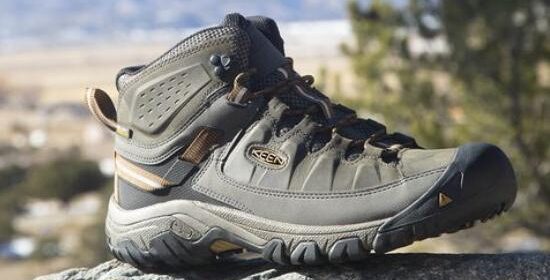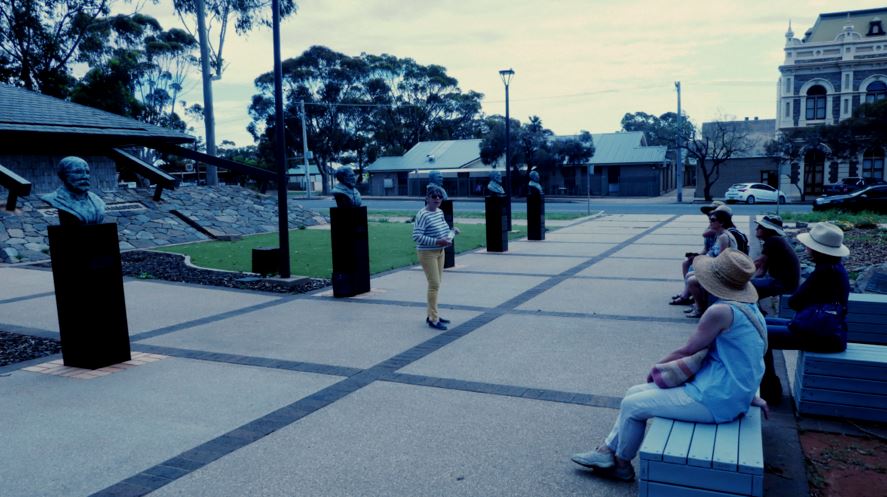We prefer hiking to ‘bushwalking’

At Nature Trail, we prefer hiking to bushwalking, and choose and recommend the Keen brand in hiking boots – quality American, lightweight, durable, trusted.
To international visitors, ‘hiking’ is a known term, but ‘bushwalking’ requires explanation. Hiking is the outdoor activity taking a long walk along a trail or track in the natural countryside for pleasure. That is why we do it and offer tours in small groups so others may enjoy it also.
Grammatically, ‘hiking’ is the present participle, a gerund of the verb ‘hike’; a gerund being a noun made from a verb root plus the suffix ‘ing’. So there ya go!
The old English word is ‘rambling’, which developed popularity in Britain over hills and down dales. The pastime evolved during the eighteenth century during the social period referred to as English Romanticism, as then an escape as the industrialisation and urbanisation of society. This and the ‘grand tour’ wanderlust of the British aristocracy became basically the birth of tourism. The UK’s Ramblers’ Association has about 140,000 active members, but now I’m rambling on a tad. In New Zealand they tend to call hiking tramping.
Walking is the gerund of ‘walk’ – the activity of proceeding on foot at a moderate pace. At Nature Trail we also walk, and refer to walks generally along footpaths at a slow, stop and start pace in an urban setting, whilst hiking is more energetic walking undertaken in a more natural setting along trails (foot tracks) usually through undulating terrain on pathways with uneven ground. So we do hiking tours (guided hiking in a natural setting) and walking tours (guided walks in an urban setting in villages and towns).
When hiking we recommend wearing hiking boots for better grip and to protect ankles; whereas on walks, comfortable runners are fine. Walking is different to hiking. Hiking is along uneven bush tracks in a natural outdoors landscape that can be tough going at times, where as walking is generally within an urban landscape across flat surfaces like pebblecrete…
A heritage ‘walking’ tour we did in Broken Hill during the China Virus pandemic of 2020, outside council chambers (safely paved in pink pebbecrete)
Backpacking has come to mean a tourist carrying a backpack and staying in low-priced tourist hostels, commonly referred to as backpacker accommodation.
Where as ‘bushwalking’ is the Australian vernacular which originally meant hiking in the bush (wooded area, outside urban areas) along a foot track. But now we don’t know what it means. It implies walking through bush/bushland. It usually involves walking through and on top of bushland, track or no track. It extends to off-track bush-bashing.
And given that bushwalking clubs do almost anything these days, clubs that still call themselves bushwalking clubs yet do all sort of things, have confused the term. For instance, The Upper Blue Mountains Bushwalking Club does ‘day walks’, pack walks, camping, bike riding, abseiling, liloing and canyoning.
Clubbers have a tendency to get bored when hiking on tracks, and indeed express an arrogant intolerance of anyone on a ‘walk’ who dares to stop and take photos and smell the roses.
The Sydney University Bushwalkers club adds climbing, rogaining, skiing and star gazing to activity suite. The Norther Rivers Bushwalking Club adds cycling, mountain biking, kayaking, abseiling. The Bankstown Bushwalking Club adds caving.
Base-jumping next? We wouldn’t put this beyond so-called ‘bushwalking clubs’.
At least the Australian BASE Association in its name is unambiguous in what it does and advocates.
http://www.australianbaseassociation.com/
They don’t advertise trips in advance.
Editorial note: Nature Trail does not do base jumping.



